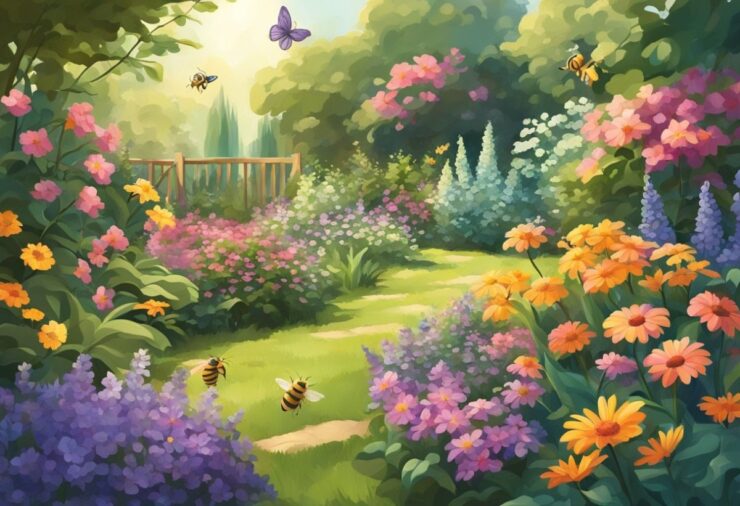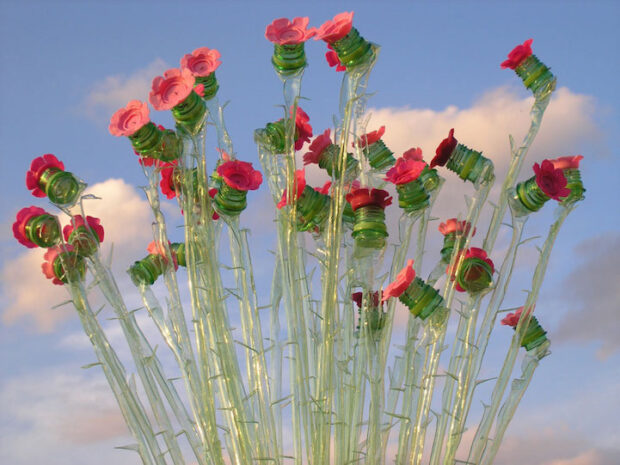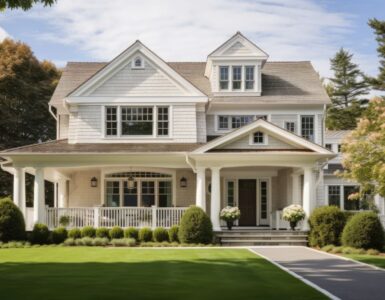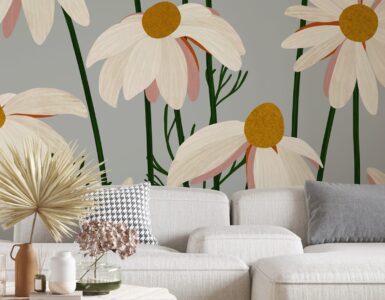As homeowners and designers alike push the boundaries of creativity and sustainability, gardens are transforming into spaces that not only exude beauty and tranquillity but also showcase ground-breaking materials and techniques.
At the heart of this revolution lies the concept of using unconventional materials that are both eco-friendly and aesthetically appealing. One such material that is rapidly gaining popularity is recycled plastic. Far from the drab, industrial look one might expect, recycled plastic offers a versatile palette of colours and textures. It’s durable, easy to maintain, and, most importantly, kind to the planet. Whether it’s used for decking, edging, or ornate garden sculptures, recycled plastic is proving that beauty doesn’t have to be compromised for sustainability.
Another frontrunner in the innovative material race is composite wood. Composite wood, a fusion of wood fibres and recycled plastics, presents a sustainable alternative to traditional timber. It doesn’t warp, splinter, or rot, making it a dream come true for garden enthusiasts. What’s more, its natural wood appearance blends seamlessly with the outdoors, providing a perfect backdrop for both traditional and contemporary garden designs.
Speaking of blending seamlessly, let’s talk about composite fencing. This game-changer in garden design offers the rustic charm of wood without its high maintenance. Resistant to weathering and decay, composite fencing stands tall through the seasons, retaining its colour and finish without the need for frequent staining or sealing. It’s not just a fence; it’s a statement of style and sustainability.
Corten steel is another material that is revolutionising garden landscapes. With its distinct rust-like appearance, it brings a contemporary and industrial vibe to gardens. It’s not only about the looks; corten steel is incredibly durable and weather-resistant, making it ideal for outdoor features like fire pits, water features, and sculptural elements.
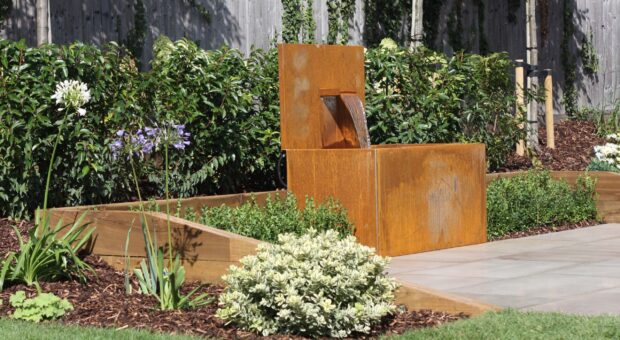
In a nod to the sustainable ethos, rain gardens are increasingly becoming a focal point in modern landscaping. Utilising native plants and materials, they are designed to capture and filter rainwater, reducing runoff and promoting biodiversity. This practical and environmentally responsible approach to landscaping shows gardens can play a crucial role in urban ecology.
Edible gardens, too, are becoming a staple in modern landscape design. Incorporating fruits, vegetables, and herbs into aesthetically pleasing arrangements, these gardens not only provide fresh produce but also offer an educational and interactive experience for homeowners and visitors.
In the realm of paving, permeable materials are gaining traction. Permeable pavers allow water to filter through, reducing runoff and helping replenish groundwater levels. Available in various materials and designs, they add a functional yet visually appealing element to garden pathways and patios.
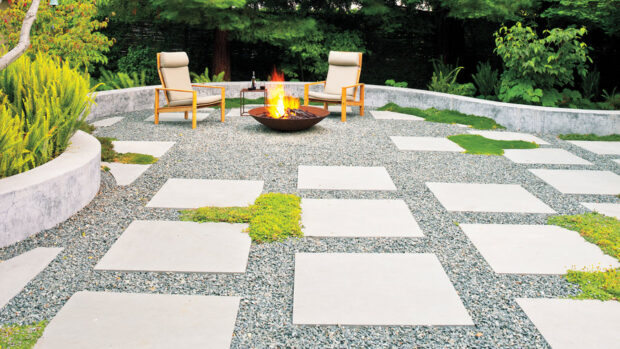
To sum up, the world of modern landscaping is witnessing a remarkable shift, driven by innovative materials that are as sustainable as they are stylish. From the resilience of composite fencing to the ecological benefits of rain gardens, these materials are not only revolutionising garden designs but also reshaping our relationship with the environment. The future of gardening looks bright, and it’s undoubtedly green.

